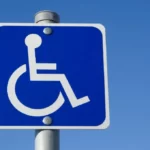
Are you pregnant and feeling like your energy meter is constantly running on empty? Trust me, mama, I feel you. In this article, we’re going to explore seven effective ways to combat pregnancy fatigue. If you want to know how to boost your energy while pregnant so that you can live your best pregnant life, then stay tuned.
Related: The Ultimate Guide to Choosing the Right Hospital for Your Delivery
What are the culprits behind pregnancy fatigue?
When you get pregnant, there are numerous changes happening in your body as it works to grow a baby. These changes all contribute to the overwhelming feeling of tiredness. Some of the factors that contribute to pregnancy fatigue include:
- Increased hormone levels
- Lower blood pressure and blood sugar
- Increased blood flow
- Disrupted sleep
- Digestion issues
- Morning sickness
- Stress and anxiety
- Frequent urination
- Heartburn
- Back and hip pain
The list goes on. It’s exhausting just thinking about it, right? Usually, it’s said that you get a little energy boost in the second trimester, which goes away by the third. However, for some, like me, that’s not the case. This left me desperate to search for remedies for pregnancy fatigue. Before we delve into these tips, please note that I am not a medical professional or a doctor. None of this information is to be taken as medical advice. Always speak with your doctor before taking any supplements or implementing fitness or lifestyle changes during your pregnancy.
Related: How to Prepare for a Home Birth: Essential Tips and Checklist
How common is fatigue during pregnancy?

Fatigue during pregnancy is very common, with studies showing that around 94.2% of pregnant women suffer from fatigue. Fatigue is most common during the first trimester, but it can also return in the third trimester.
Related: 12 Shocking Truths About Labor and Delivery: What They Don’t Warn You About
How to deal with pregnancy fatigue?

Tip 1: Exercise for Energy
This first tip may seem a little counter-intuitive, but a great way to boost your energy during pregnancy is to work out. Don’t roll your eyes just yet; let me explain. Studies have shown that 30 minutes of moderate exercise on most days of the week during pregnancy can actually help boost your energy levels. If that sounds like too much, even breaking it up into three short 10-minute intervals throughout the day counts. If you’re new to exercise, take it slow and, once again, always check with your doctor to make sure you’re cleared for physical activity.
Something simple like brisk walking or swimming are excellent ways to get your blood pumping and your energy up. I’ve been aiming for at least three days a week of light weight lifting throughout this pregnancy, and I have to admit that on days when I work out, my energy is without a doubt higher than on days when I don’t.
Tip 2: Morning Workouts
Another tip related to exercising is to do it first thing in the morning. I know this probably seems dreadful, especially if you’ve been having a difficult time waking up during pregnancy. But waking up early and getting your workout done first thing in the morning is incredibly beneficial for several reasons.
The first reason is that it’s done right away; you don’t have to worry about it for the rest of the day. Second, it’s a great way to wake up. There are so many times when I’m exhausted, but dragging myself out of bed at 5:30 AM to work out actually helps me become more awake. The hardest part is putting your feet on the ground and pushing yourself to get out of bed, but you can do it. Third, and most importantly, it gets your energy up right at the start of your day. So, as painful as it sounds, try and wake up at least 30 minutes earlier to squeeze in that little exercise routine.
The Benefits of Exercising During Pregnancy
Exercise during pregnancy not only boosts energy but also helps reduce:
- Back aches
- Constipation
- Bloating
- Swelling
- Stress
- Mood swings
- Weight gain
- Promotes muscle tone, strength, and endurance
Moreover, exercise during pregnancy can even lead to a shorter labor. Who wouldn’t want that? So, even when it’s hard, and even when you’re tired, try to push yourself to squeeze that workout in.
Tip 3: Prenatal Vitamins and Vitamin B12
Vitamins are super important during pregnancy, both for your health and the health of your growing baby. It’s crucial to take your prenatal vitamins as directed each day. Vitamins can help increase your energy, especially vitamin B12. Taking a vitamin B complex may help boost your energy levels during pregnancy and combat pregnancy fatigue. Liquid vitamin B complexes are preferred by some because they are absorbed faster, but as always, consult your doctor before taking any supplements during pregnancy.
Tip 4: Power Naps for a Quick Pick-Me-Up
This next tip may have you saying, “Well, duh,” but hear me out. Tip number three is to take naps. I know you’re busy and probably saying, “I don’t have time for a nap.” But studies show that just sneaking in a short 10 to 20-minute nap can give you a boost in alertness and energy.
However, taking longer naps can actually make you feel sleepier than you did before you fell asleep, as your body goes into deep sleep (REM sleep). Keeping your naps to less than 20 minutes can give you the boost you need to keep going throughout your day. Try to keep your nap between 12 and 2 PM to avoid disrupting your nighttime sleep schedule.
Tip 5: Stay Hydrated
Staying hydrated is essential during pregnancy, as it not only increases your energy but also offers other benefits like decreasing constipation, reducing swelling, and keeping you cooler. It can also help reduce the risk of urinary tract infections and preterm labor. Carrying a water bottle around with you daily can help you keep track of how much you’re drinking.
Tip 6: Fuel Your Body Right
Food is fuel for our bodies. During pregnancy, it’s crucial to fuel your body with the right kind of food to keep your energy up and stay healthy. While it’s hard to resist cravings, try to maintain a healthy, balanced diet most of the time during your pregnancy. This will not only help keep your energy up but also help you control weight gain.
Some energy-boosting foods to combat fatigue during pregnancy include foods rich in protein, iron, magnesium, and complex carbs. Examples include nuts, spinach, lean red meats, eggs, oatmeal, apples, seafood, poultry, beans, and yogurt. Also, try to avoid refined carbs and sweets as much as possible, as these foods tend to sap your energy.
Tip 7: Optimize Your Sleep Conditions
If you’re waking frequently throughout the night, this can contribute to feeling fatigued and tired the next morning. To improve your sleep conditions, consider the following:
- Make sure you’re meeting your daily water quota early in the day to reduce nighttime bathroom trips.
- Avoid late-night eating, ideally nothing two hours before bedtime to prevent heartburn.
- Create a sleep environment that is cool, dark, and clean to promote sound sleep.
If you’re still struggling with extreme fatigue, talk to your doctor to see if they can help or if there are any underlying issues that need to be addressed.
Related: Understanding Cervical Checks During Labor
Conclusion
Pregnancy fatigue is a common challenge that many expectant mothers face. However, with the right strategies and lifestyle adjustments, you can combat pregnancy fatigue and have a more energized and enjoyable pregnancy journey. Remember to consult your healthcare provider before making any significant changes to your routine during pregnancy, and don’t forget to take care of yourself and prioritize your well-being throughout this incredible journey into motherhood.
Related: Eating Dates For Natural Induction
Frequently Asked Questions (FAQs)
What causes pregnancy fatigue?
Pregnancy fatigue is primarily caused by hormonal changes, increased blood flow, disrupted sleep, and the physical strain of carrying a growing baby.
Can exercise help reduce pregnancy fatigue?
Yes, moderate exercise during pregnancy can boost energy levels, reduce aches, and promote overall well-being. Always consult your doctor before starting an exercise routine.
Are prenatal vitamins effective for combating fatigue?
Prenatal vitamins, especially those containing vitamin B12, can help increase energy levels. However, consult your healthcare provider before adding any supplements to your routine.
How can I optimize my sleep during pregnancy?
To improve sleep, maintain a consistent sleep schedule, create a comfortable sleep environment, stay hydrated during the day, and avoid heavy meals close to bedtime.
What foods can help combat pregnancy fatigue?
Foods rich in protein, iron, magnesium, and complex carbohydrates can boost energy levels. Examples include nuts, lean meats, spinach, and oatmeal. Avoid refined carbs and sweets.











